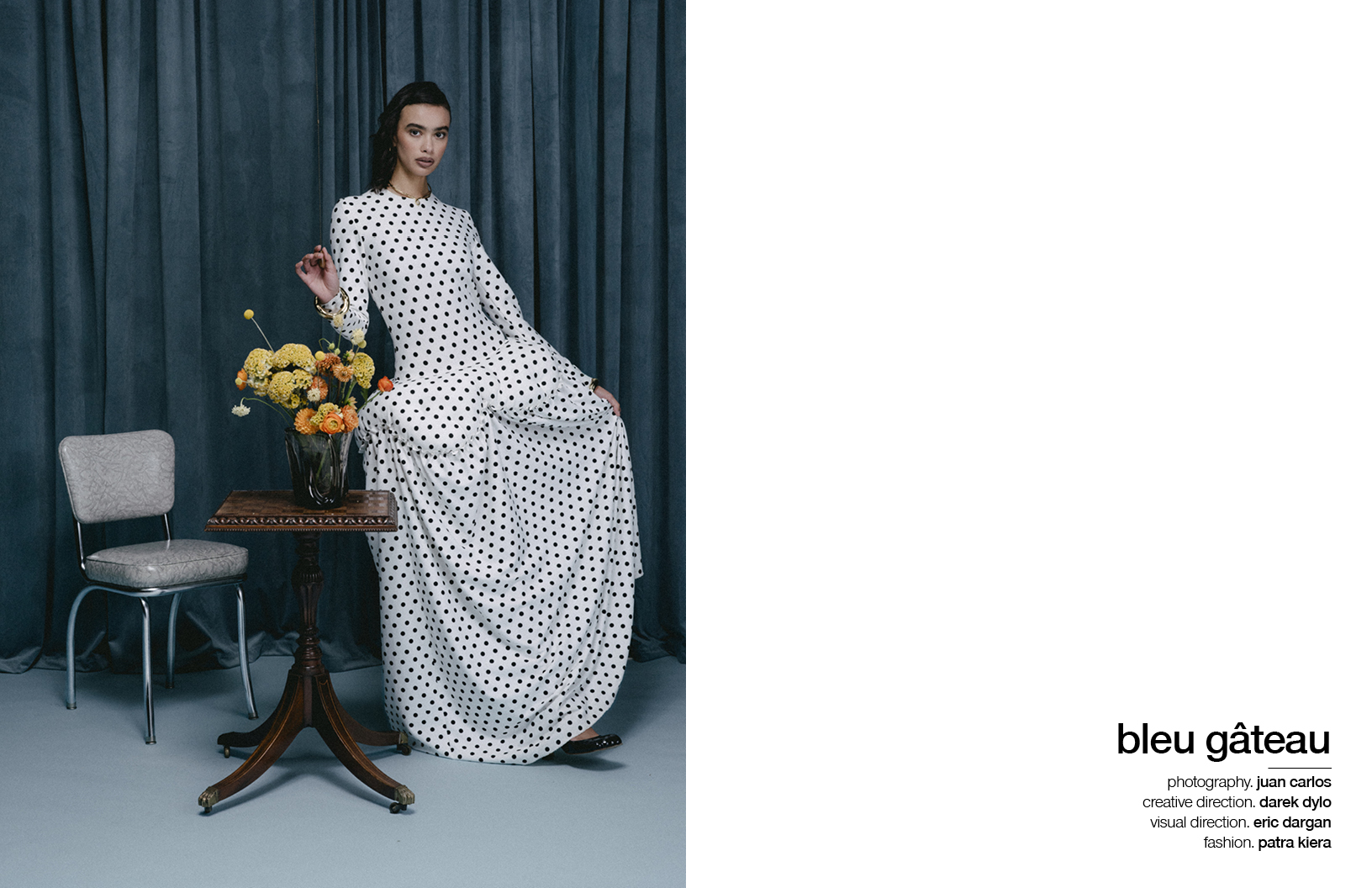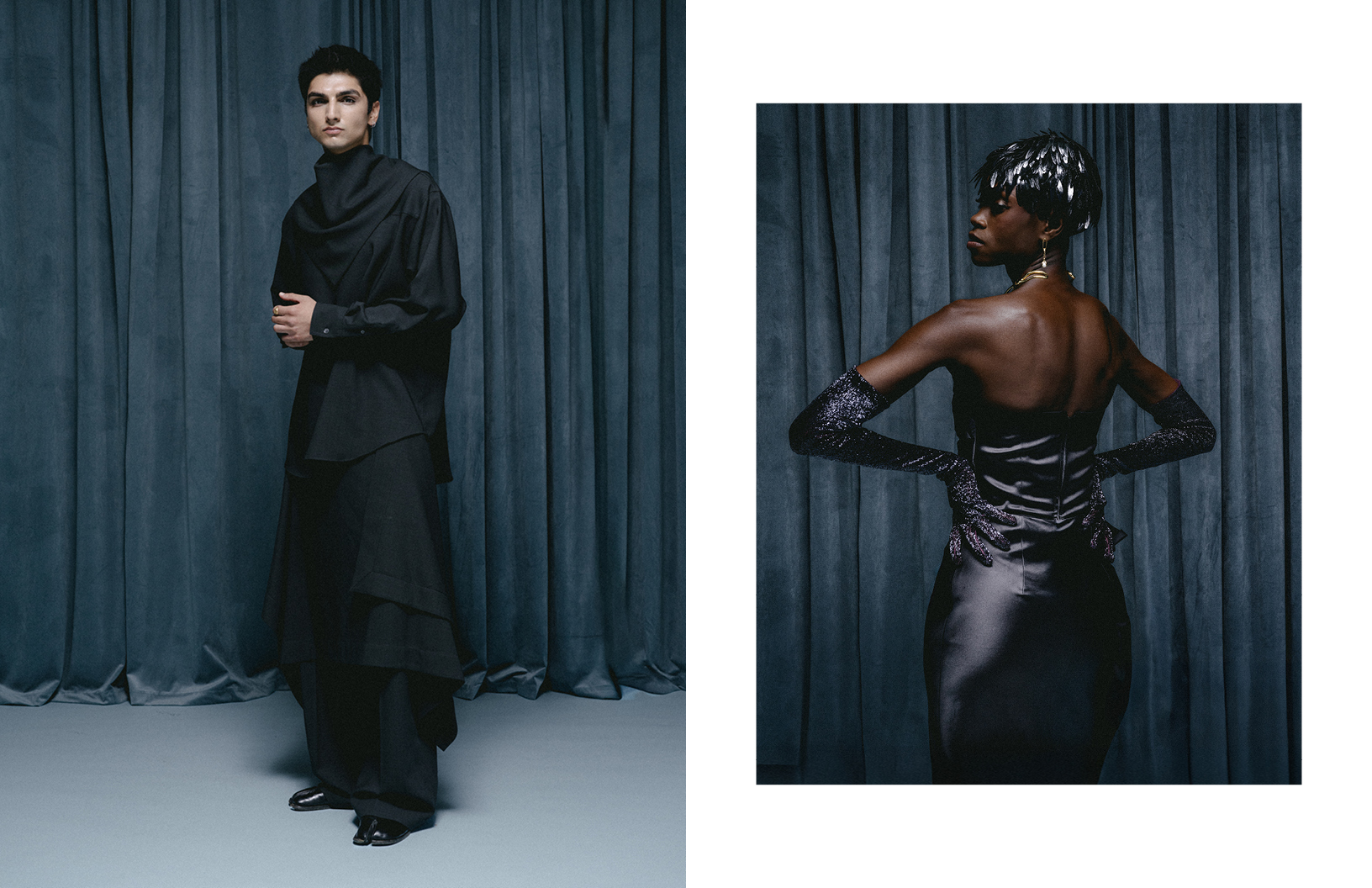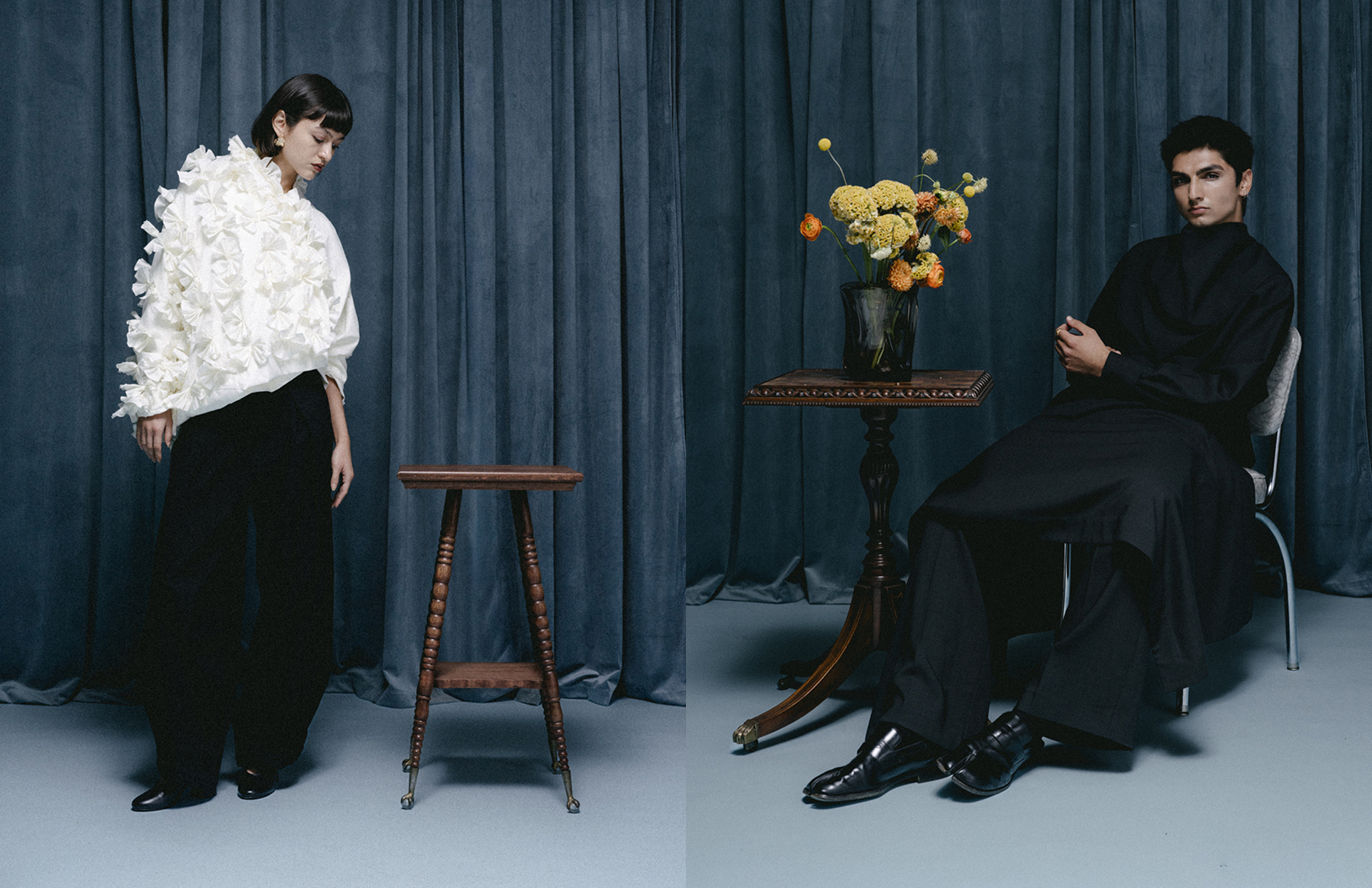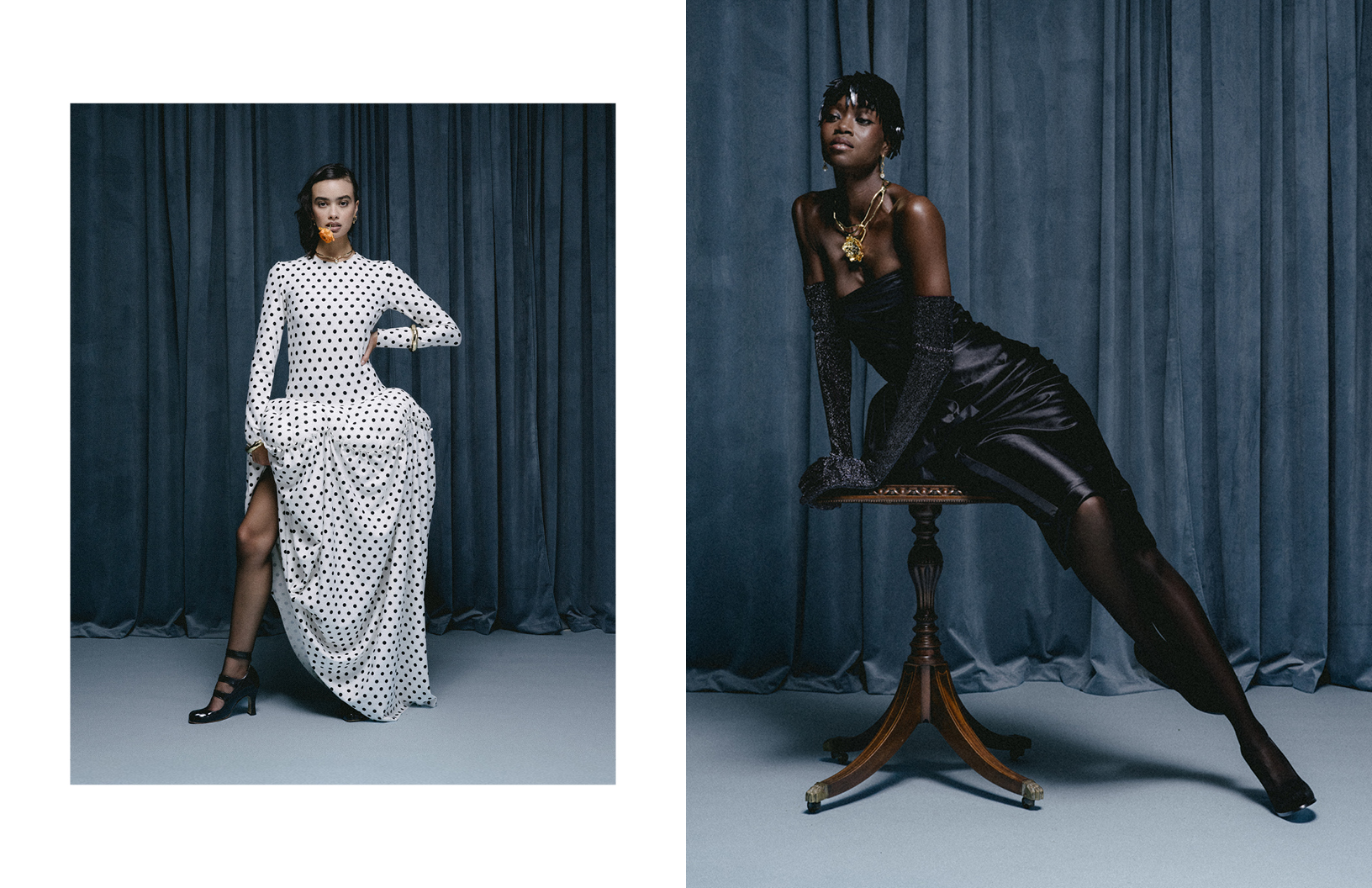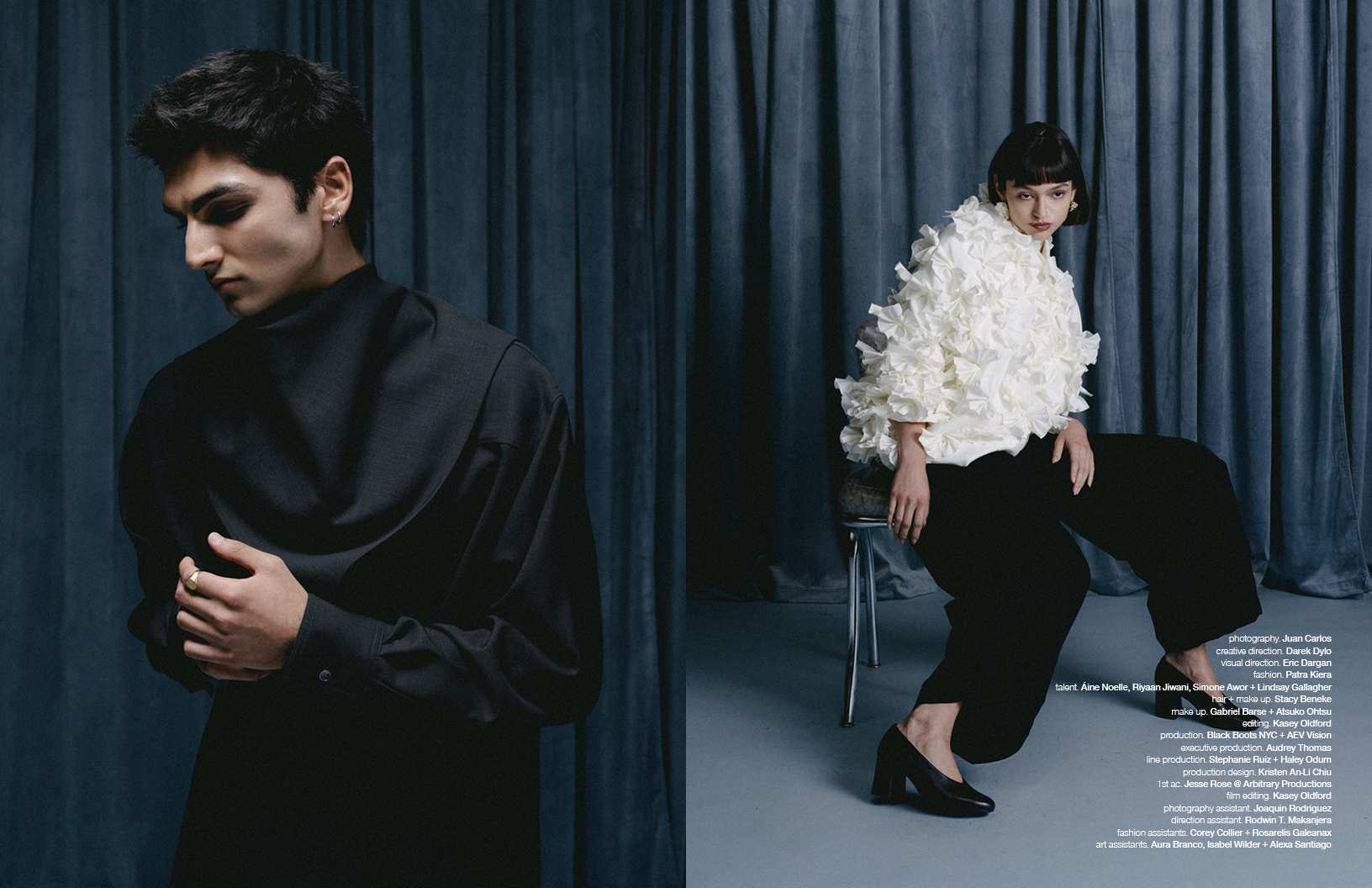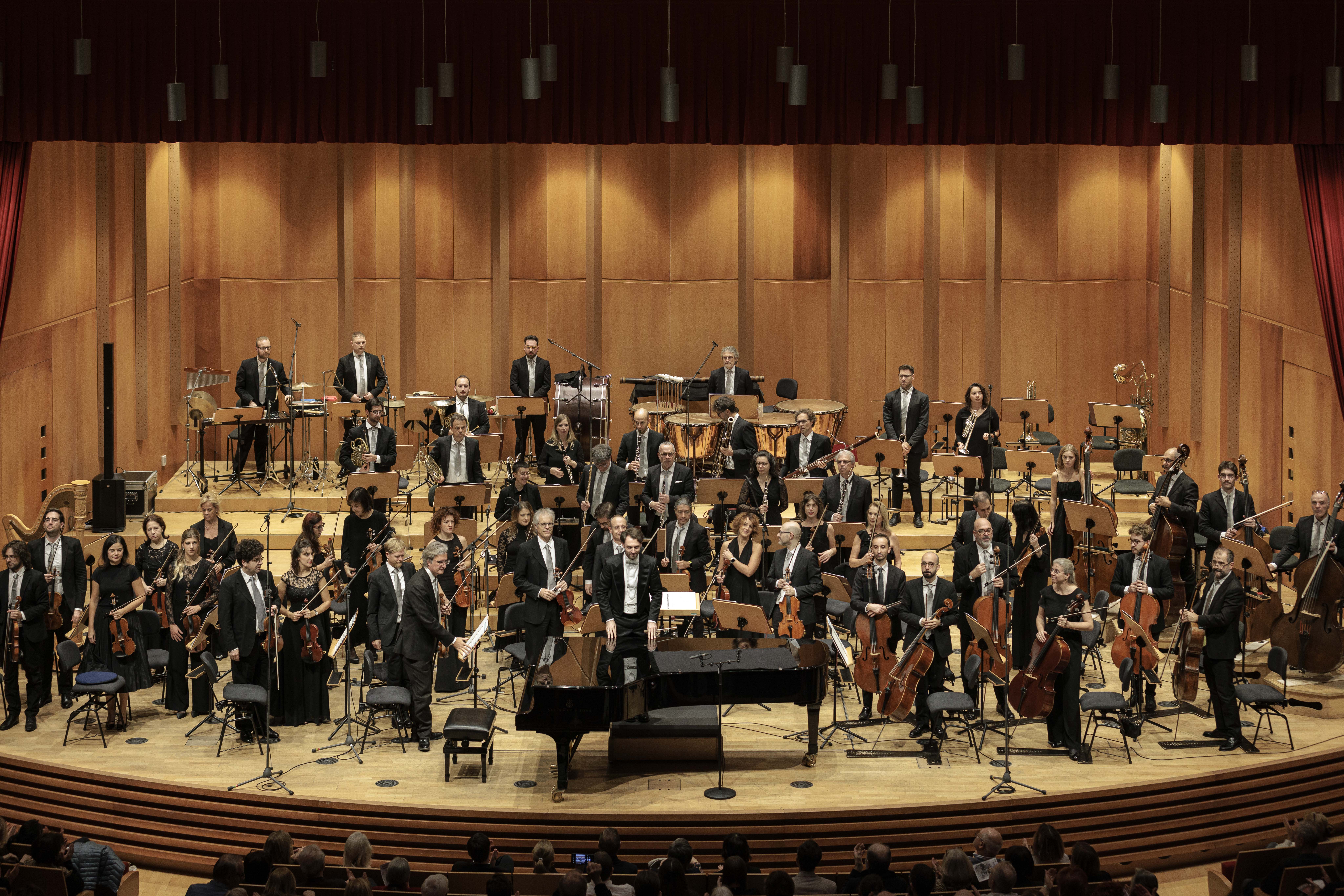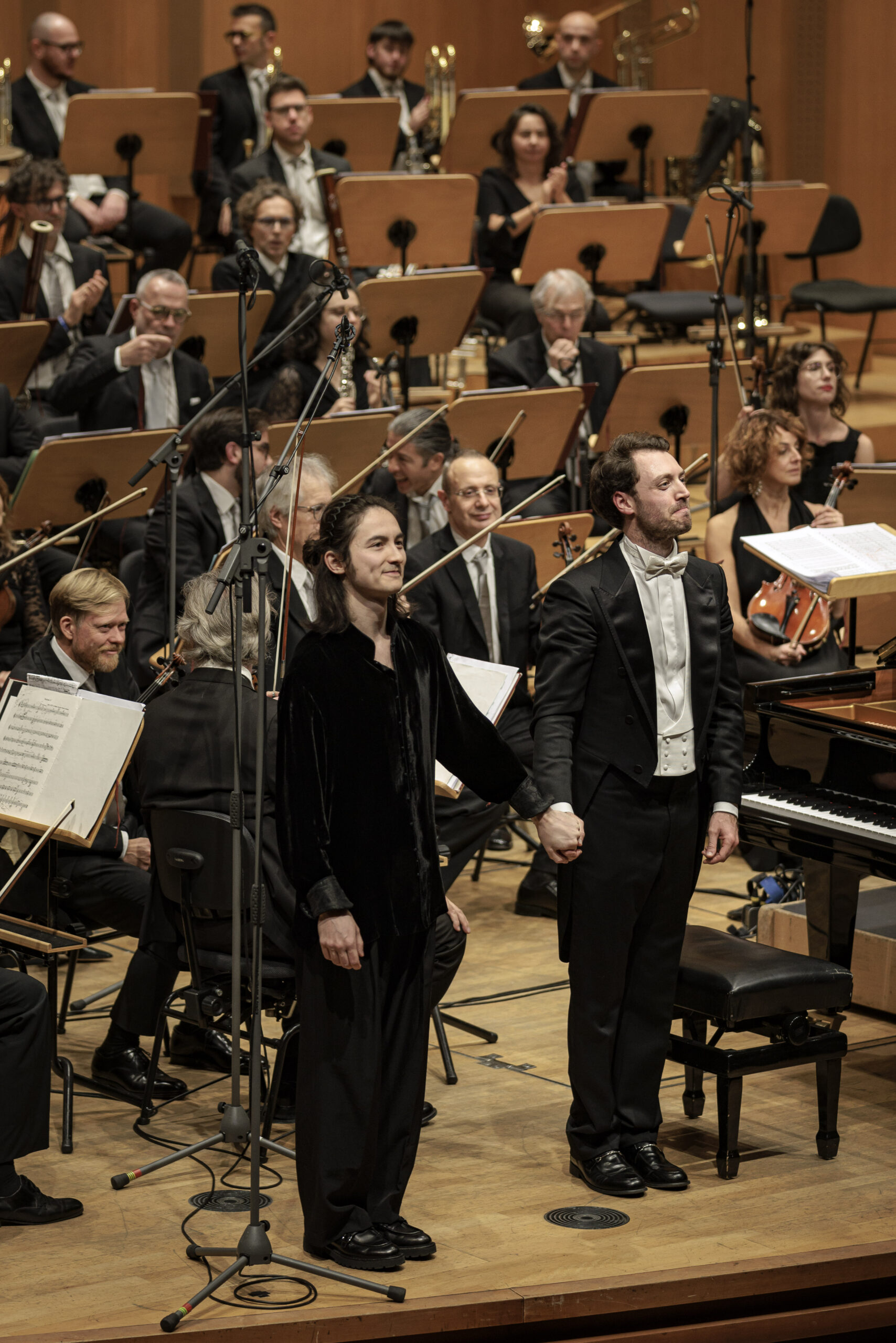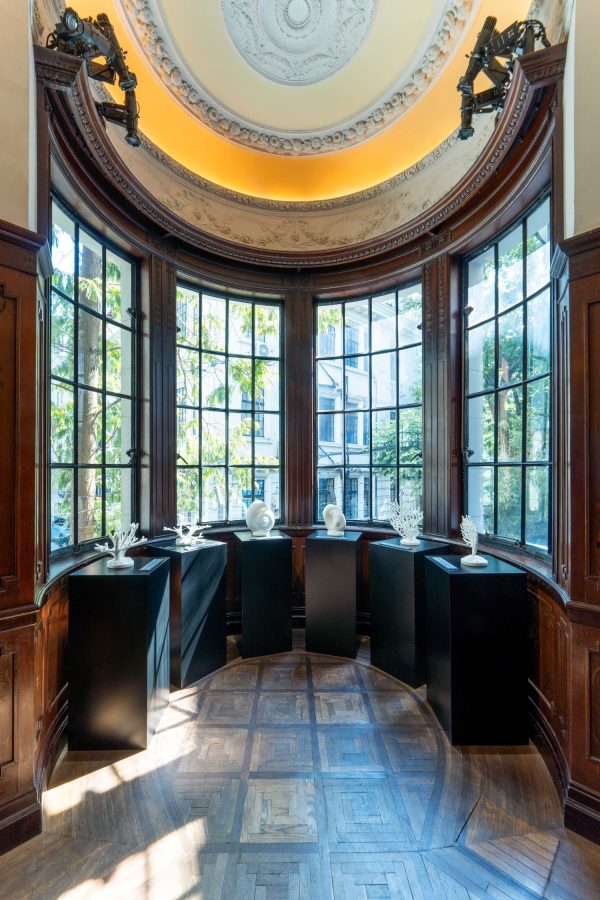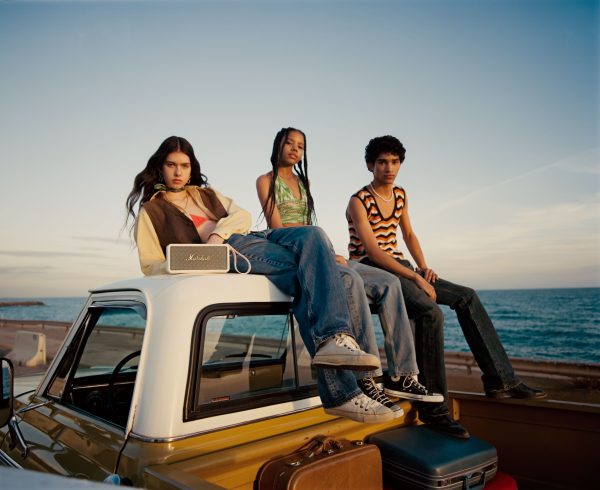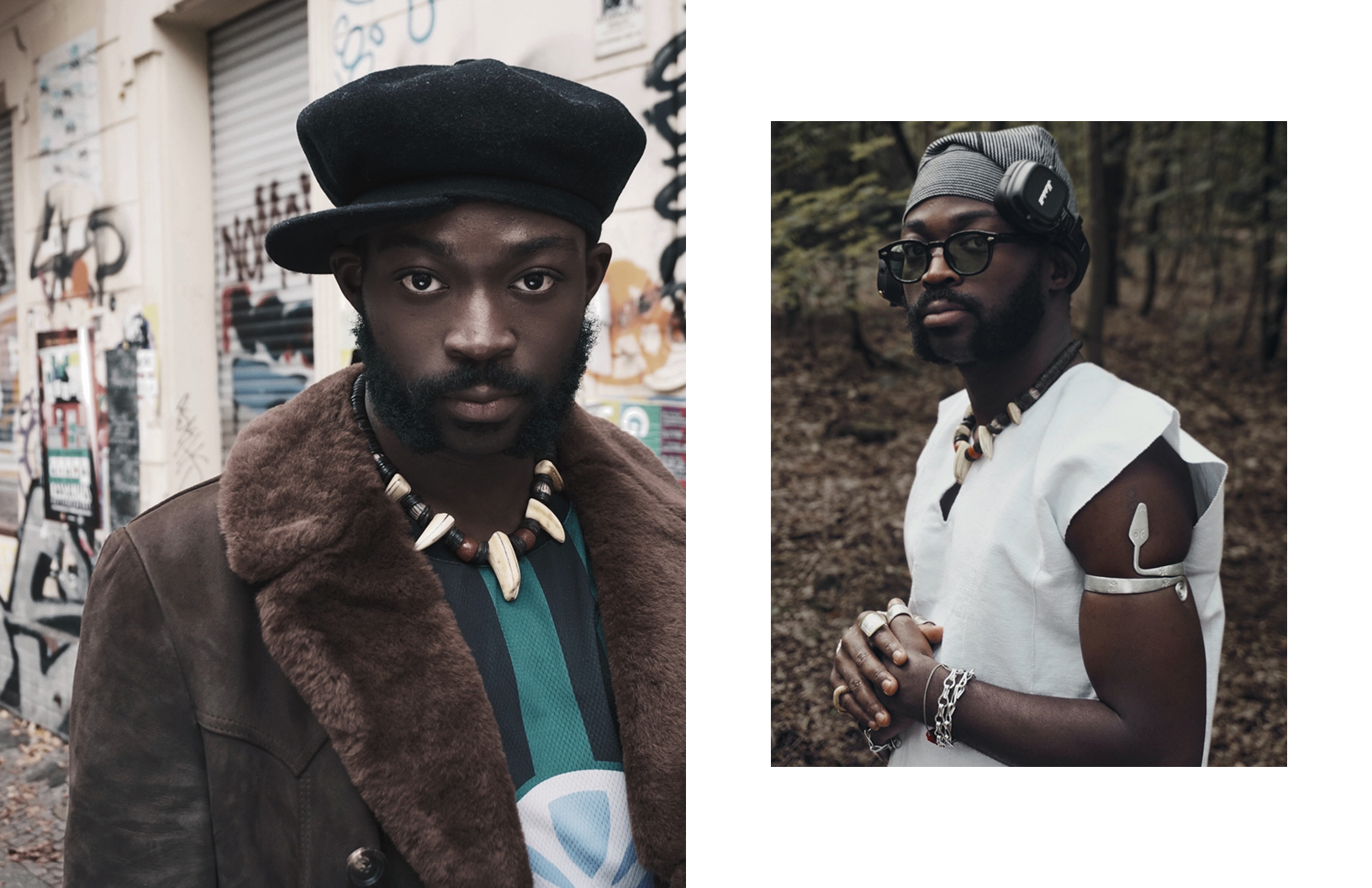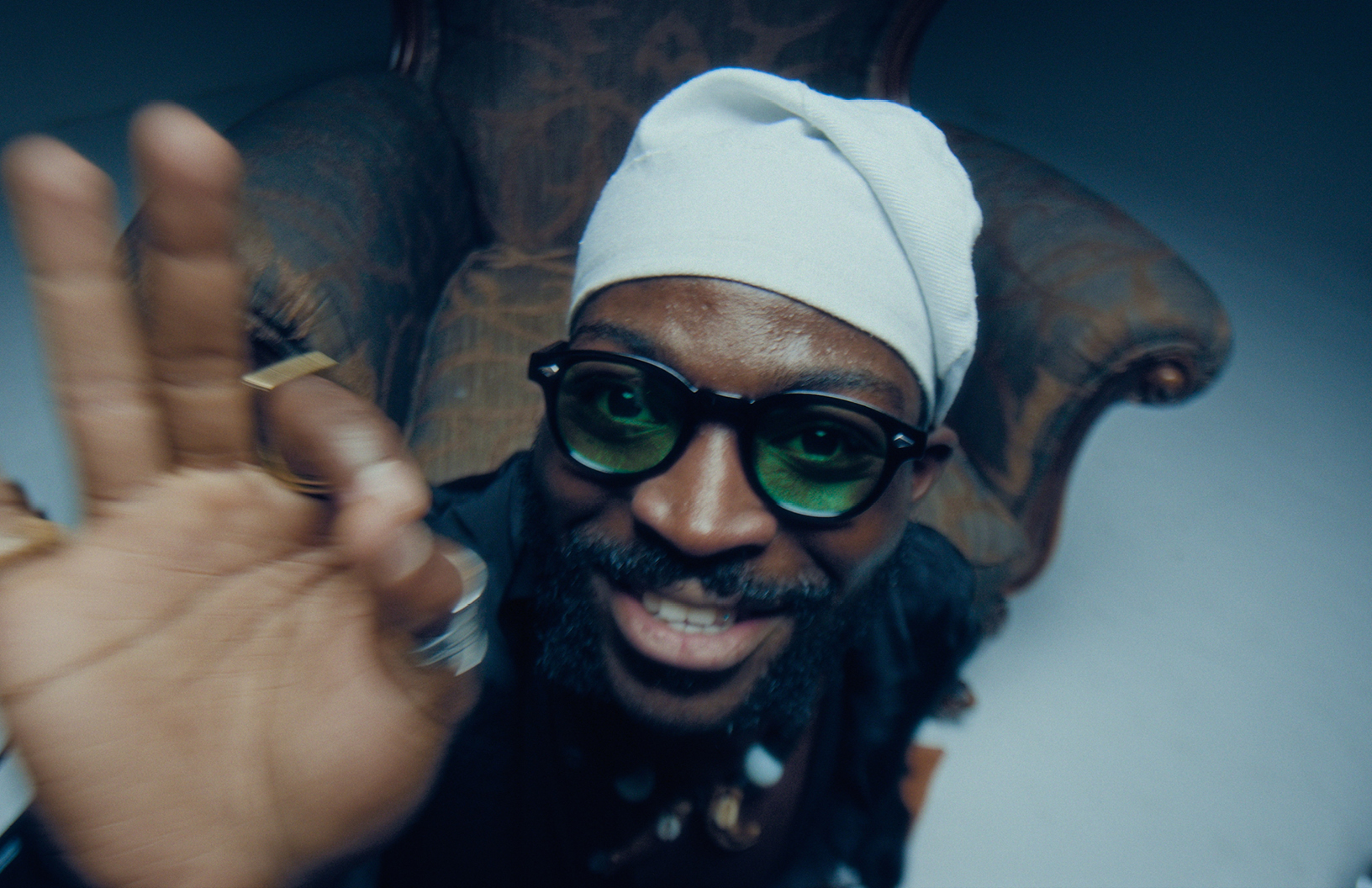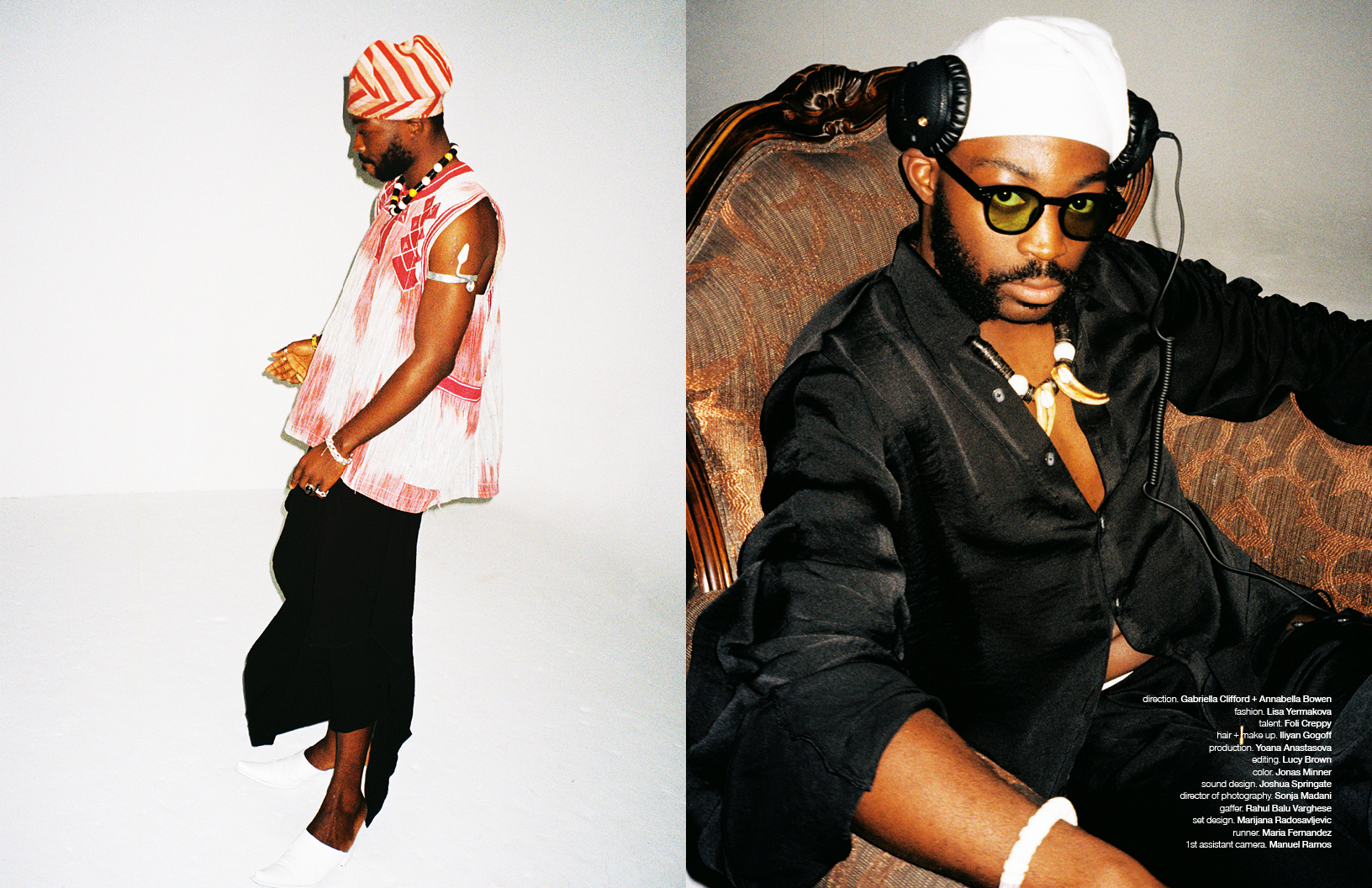Imagination is a powerful tool when it comes to acting out those blasting emotions that lay unfazed on the page of a script and bringing them to the concrete world is an even more daunting experience. But the beauty of talents like Nathan Stewart-Jarrett is that they can effortlessly translate the fantastical into reality. The British actor has a dynamic and versatile portfolio of works under his belt, starring in Misfits and the remake of the horror cult classic, Candyman.
In his latest cinematic venture, Femme, Stewart-Jarrett pushes all boundaries in an intriguing performance as Jules, a drag queen who is the victim of a homophobic attack. Within Jules’ vengeful plots against his assailant, Preston — brought to life by fellow Brit, George MacKay — unfolds the intricate dynamics of their entangled relationship. Directed by Sam H. Freeman and Ng Choon Ping, the film has been a success, especially among the LGBTQ+ community, winning the Iris prize for best feature. This thriller isn’t your typical cinematic ride; it’s bold, unfiltered, and unapologetic. Stewart-Jarrett’s off-screen persona is just as intriguing: lots of book and film recommendations — especially John Waters’ — accompanied by an enviable knowledge of anything horror.
In conversation with Schön!, Stewart-Jarrett discusses the process of becoming Jules, the importance of combating toxic masculinity, his endless love for horror and becoming the ‘final boy’, and much more.
Nathan, last year has been quite eventful for you: from the release of Femme, Culprits and multiple other projects, to winning Best Joint Lead at the British Independent Film Awards. How’s the new year looking? What are you most excited to work on?
I mean, it’s still January. I don’t know if anyone’s quite ready for the year. 2023 was kind of an incredible year. It was all of this anticipation of it coming out, and you’re really excited and also a little nervous about how people are gonna receive it. So it was great that Femme was received so well, from going to Berlin and premiering there in February.
What’s your current favourite film you’ve watched recently? What about your latest read?
My favourite movies of last year were two: one was Anatomy of a Fall. It was just really interesting and really just an amazingly directed and acted movie. And my second favourite was Rotting in the Sun. I thought they were really amazing and stood out in a way that they weren’t in any sense formulaic. I didn’t actually know what was going to happen in either movie and I felt they really embodied the spirit of cinema. I’ve also just started this book by Kate Braverman called Lithium for Medea, but John Waters released a book called Liar Mouth recently and I need to actually read that.
Your earliest approach to acting was through theatre, with various plays at the National Theatre before landing on TV with Misfits. When did you realise that this was the right path for you?
I think it was halfway through drama school. I was already in that world or in that frame of mind, but halfway through drama school, someone told me to take it seriously. But honestly, I think I just check in every few years and I’m like, ‘Are you enjoying this? Are you stimulated by this?.’ If I’m not stimulated, then there’s no point. You’ve got to actually still be emotionally, and intellectually engaged. I love the commune in film between the actor and director. I love doing a take and then exploring this thing over and over again with your fellow actors.
First of all, I’d like to compliment you on your performance in Femme — it was a great watch. The film is a powerful, raw representation of what it feels and looks like to be the victim of toxic masculinity and homophobia as a queer person. What went through your head when you landed the role?
Often when things are heavy, you do not have time to sit and ponder. I didn’t have very long between Culprits and Femme. I had three weeks, so I felt the weight artistically. I was like, ‘You’ve just got to get on with it.’ You’ve got to analyse the character, think about where you’re coming from and how to play and embody this person. It’s very liberating in that sense, but I thought a lot about my body because there are two different characters, there’s Jules and there’s Aphrodite, but actually there’s like four. So I was like, ‘How do you move? How do I embody this person pretending to be someone else when they’re trying to ensnare?.’ I think you have to look after yourself in that instance and separate the two things.
Jules and Aphrodite are incredibly different characters despite sharing the same body. One is this charismatic drag performer while the other is the sad reflection of all the traumatic experiences when the make-up is off. How did you manage to fully capture both ‘personas’ if you will? Did you look at real-life icons to prepare for the drag?
In a sense, Aphrodite herself is an expression and extension of Jules. So though they are definitely different things in terms of movement, the anchor is actually the same. In that instance, the emotional landscape was actually somewhat the same. When Aphrodite is stripped, there is a transformation to Jules. But Jules doesn’t stay in that trauma. He’s not a saint, he knows he’s not doing the right thing but he is regaining a sense of agency, and just chooses not to stay a victim. For inspiration, I was looking more at the spirit of people. I looked at Chun Li from Street Fighter, Naomi Campbell, and Nicki Minaj when we were going through Aphrodite’s rebirth at the end of the movie. I didn’t want to look at drag queens. I just felt like that’s someone else’s expression of something, it’s a derivative.
George MacKay was on the other side of the events as Preston, a closeted gang leader and the instigator of the violence. How was working with George in the more crude scenes? What about your chemistry in the intimate ones?
They’re pretty much two different sides of the same coin, if I’m honest with you [laughs]. We were very close. It worked really well with an intimate coordinator and a stunt coordinator, but even in the scenes that weren’t intimate or violent or violently intimate, we worked closely together and listened to each other. I loved working with him so much.
Through the film, Jules’s character evolves in a way that almost takes away his essence as he’s incredibly determined to take revenge. What was your thought process and preparation when reading the script?
What I think was great about the script, about the opportunity to play him, is that he’s confused. He gets lost in that thing. It’s impossible for him to be the same person at the beginning and at the end. Jules regains something, but he is changed because of that experience and actually, you can see that he doesn’t win. Revenge is interesting in that sense but actually, he’s become conflicted about having an emotional feeling towards someone.
Going back to toxic masculinity, it’s still a heavy subject for most people and an issue that society can’t seem to get rid of. Why do you think that it is so incredibly engraved into people’s minds? Why can’t we all be more feminine? And how can we combat it apart from fictional representations?
As an actor, it’s for me to pose those questions and not answer them. Toxic masculinity is masculinity at its extreme, and I think many things at their extreme are too much. I think we need to ask why it’s still there, we need to ask why it’s largely unchallenged or somewhat attractive to certain people. I think that’s what the movie does. It asks, how do we solve this? Who is this person? Is this person in me? It’s a good movie because it evokes the sense that we need to act on this as well.
What’s your opinion on typecasting? Is that something you fear when you land roles such as Jules?
I hope not [laughs]. I think you always have to fight against typecasting. I’ve been very lucky, and I hope to continue to be, that I have played different types of characters. Just looking at Culprits, it’s completely different to Femme and, weirdly enough, they have a similarity in that they don’t talk very much about their feelings. I think it happens to a lot of people and you have to kind of battle, fight, say no. We’re in a time now where there still are fewer parts for Black actors and Asian actors. When there’s not as much work, saying no to things is a little harder, but I still think that one has to try.
Femme is not the only project that has come out recently. You also star in Hulu’s latest series, Culprits, as Joe Patrus ‘Muscle’. Why were you interested in joining the cast? How was your experience on set?
It was a completely different experience. There were a lot of stunts in Femme, but in this, I was an all-action leading man. I was running around with guns, dragging bodies out of stuff and I was always lifting people up. It was hard, but it was incredible. I loved getting up early in the morning, going to the gym, then getting there and working on the scenes. And I loved working with Jay Blakeson and Claire Oakley, the two directors, they gave me so much freedom to just run around and try things. Femme was like a sprint and Culprits was definitely a marathon; we filmed for eight months in four different countries and I just loved embodying this person that was so different to who I am.
Horror seems to be one of your favourite genres: Candyman and now the upcoming film Azrael. Why do you prefer this genre? Do you see yourself becoming a prominent figure in horror films?
I would love it. I do love that genre and I would love to be more involved. I always say that I want to be like the final boy. There’s something that was incredibly counterculture to horror movies that talked and commented about different things that don’t take themselves too seriously, but still, you get the social commentary. I’d love to specifically do a Christmas horror like Black Christmas.
What would be some of your dream roles and cinematic collaborations?
I was actually reading this article with John Waters and he basically said that he wanted someone to do all of his movies in French. I’d love to be in a John Waters French movie. Other directors would be David Fincher, Christopher Honoré, and Karyn Kusama but there are so many.
Lastly, what are your hopes and resolutions for the year?
I never really do resolutions, I just pick a word that will carry me through the year, like a good mantra, and I’m not going to tell you what it is.
photography. Guarionex Rodriguez
fashion. Nicolas Eftaxsias
talent. Nathan Stewart-Jarrett
grooming. Seiya Iibuchi using Bioderma + L’agence
cinematography. Derek Siyarngnork
second camera + editing. Sean Minam Kim
location. Liberty Studio NYC
interview. Gennaro Costanzo



































































